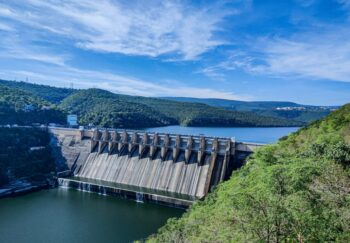
Monday, March 4, 2024
Among the different Portuguese speaking countries in Africa, Mozambique tends to take the lead in what concerns environmental and climate-related policies. The country just did it again, with the recent enactment of a rather ambitious Just Energy Transition strategy (JETS), the key purpose of which is to leverage Mozambique’s abundant renewable and natural resources to accelerate the implementation of a low-carbon economic development trajectory that enables the country to generate inclusive socio-economic growth, position itself as a regional green energy hub, and contribute to the global energy transition.
By Hortência Machiana and Susana Pinto Coelho, Miranda & Associados
The JETS has three strategic objectives: (i) National Development – promote and accelerate universal, affordable and reliable access to clean energy sources to improve the well-being of all citizens and make the country a middle-income economy; (iii) Regional Energy Hub – position Mozambique as a regional energy hub and provide low-carbon energy to Southern African Development Community (SADC) countries; and (iii) Global Energy Transition – contribute to the global energy transition by exporting the country’s abundant natural gas resources and provide the world with an important and necessary transition fuel.
The implementation of the JETS is based on four interdependent pillars, all targeting low carbon growth and development, notably: (i) Modern Energy System based on Renewables – transition from an energy system based on primary energy and thermal generation to a system oriented towards renewable energy sources; (ii) Green Industrialization – enhance Mozambique’s economic development through an industrialization process that takes advantage of the country’s vast energy resources; (iii) Universal Access to Modern Energy – transition from reliance on firewood and coal in the residential sector to electricity and clean cooking solutions.; and (iv) Adopting Clean Transport – transition from a transport sector dependent on petroleum products and private vehicles to clean biofuels, electric vehicles and public transport.
To materialize these four strategic pillars, the Government defined different programs and set forth key priorities up to 2030, notably: (i) hydropower development; (ii) expansion and improvement of the national electricity grid; (iii) development of solar and wind energy:; (iv) development of green industrial parks and corridors; (v) accelerated access to off-grid energy; (vi) massification of clean cooking solutions; (vii) decarbonization of the transport system; and (viii) development of the biofuels supply chain. Specific guidelines for JETS implementation purposes have also been addressed, notably on climate resilience and adaptation, social justice and gender equality.
The implementation of the JETS programs will involve a range of investments and financing needs, in connection with, notably, infrastructure and equipment costs, regulatory reforms, social security and labor policies aimed at mitigating potential impacts of the energy transition. Preliminary estimates indicate that the investments needed for the implementation of the JETS amount to more than USD 80 billion between 2024 and 2050.
Funding needs and schemes will be defined in more detail at a future stage alongside with the development of specific investment plans for each of the different programs approved. However, it is expected that the funding strategy shall encompass different solutions including, private and public funding, public private partnerships and innovative financing tools, notably international carbon markets and combined financing arrangements.
Mozambique aims at becoming a key player in the energy transition in Africa and is keen to attract investment in the renewable energy sector. The Government is aware of the critical role of the private sector for these ambitious goals to be met. As a result, the Government plans to enact new regulations to the Electricity Law – Law No. 12/2022, of 11 July 2022 – aimed at facilitating the participation of the private sector in the development of integrated renewable energy systems and promoting the simplification of processes and minimizing red tape. The private sector is also expected to have a key role in implementing photovoltaic self-consumption systems, developing mini-grids and micro-grids, scaling-up clean agricultural and fisheries technologies, promoting and distributing clean cooking solutions and possessing and distributing biofuels.
Hortência Machiana is an Associate of Miranda & Associados, and a member of Miranda Alliance’s ESGimpact+ Team. Susana Pinto Coelho is a Partner at Miranda & Associados and the Head of Miranda Alliance’s ESGimpact+ Team.
Miranda & Associados is an international full service legal practice which serves the needs of many of the largest multinational corporations. Through its Miranda Alliance network, the firm offers a full range of commercial legal services, combined with an in-depth knowledge of local practices, in a total of 18 countries in four continents, including some of the most challenging and fast-growing emerging markets.